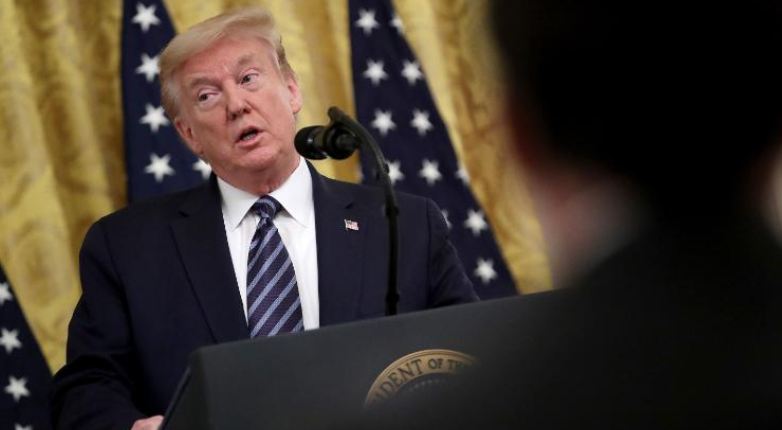Trump is now openly campaigning for the country to open up, despite studies that show tens of thousands of people could die in new outbreaks of the disease.
“We have to be warriors. We can’t keep our country closed down for years,” Trump said. “I think people won’t stand for it, actually. I don’t think our people will stand for it.”
But despite widespread demonstrations by conservative groups against governors who are keeping their states shut down, polls suggest that many Americans are wary of resuming normal life.
Nearly two-thirds of those asked in the Monmouth poll were concerned that states will begin lifting restrictions too quickly. And only 33% share Trump’s implied view that stopping the economy from going into a deep, lengthy downturn is more important than stopping people getting sick.
The initial economic trauma of the shutdowns is likely to be exacerbated by sobering facts on the state of the pandemic. While cases are dipping in worst-hit regions such as New York and New Jersey, they are actually rising in many states yet to peak.
Maybe the US will get lucky and will be spared widespread new pandemic hot zones. But science suggests that states that are now reopening in the absence of robust testing and tracing programs will experience a spike in cases that could cause a second economic shockwave. Given the incubation period of the disease it will several weeks before the impact of eased restrictions begins to show up in serious illnesses.
Many of the states that are getting back to business are nowhere near meeting the 14-day period of consecutive infection rates that are recommended by the White House prior to opening.
In Texas, for instance, where GOP Gov. Greg Abbott has allowed businesses such as restaurants to reopen at much reduced capacity, there were 1,000 new cases of coronavirus reported on Wednesday.
If new infections do emerge on a wider footprint than the previously worst affected areas on the coasts and in the city, the consequences for the economy could be even more serious.
Service jobs in restaurant, leisure, and travel sectors are unlikely to recover when the public is wary about going out.
And rising infections could take another swipe at the health sector which helped drive recent jobs gains but has been hammered in recent months, with elective surgeries and routine appointments canceled.


